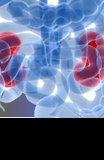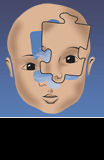Medical diagnostic imaging is used in nearly all areas of medicine, from general practice to surgery, obstetrics, orthopaedics and even psychiatry.
Radiology is provided on all of the Trust's sites:
- Drop-in services for general X-rays - JR and community sites
- John Radcliffe Hospital
- John Radcliffe Hospital West Wing Neuroradiology
- Churchill Hospital
- Nuffield Orthopaedic Centre
- Horton General Hospital
Medical imaging methods include:
- ionising radiation
- X-rays
- computer tomography (CT)
the use of energy waves to build three dimensional images of the body - magnetic resonance imaging (MRI)
the use of a powerful magnetic field to create images of the body - ultrasound scanning
the use of sound waves to create images of the body - nuclear medicine
the use of radioactive decay to create images, by giving patients 'radiopharmaceuticals' that collect in the relevant area of the body: used to study the physiology and metabolism of the body rather than the anatomy.
Interventional radiology is a specialist branch of medical imaging that uses therapeutic devices, inserted and guided by high-resolution imaging, to treat a wide range of conditions, thus avoiding operations.
For more information about our Department of Medical Physics and Clinical Engineering please visit their website:




























































